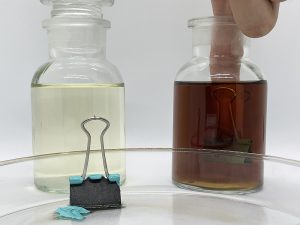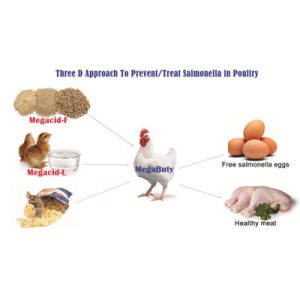
Research News
Paraformic acid: an innovative alternative to formaldehyde in the animal feed industry
By: Dr. Kasen Zhai1; M.Sc Richard Mudarra2. More than a decade ago, the use of antibiotics as growth promoters was restricted in the European Union due to the severe consequences of bacterial resistance. This consequence was strengthened by the inappropriate, excessive and continuous use of antibiotics in food formulation, as the main strategy for the control of pathogenic bacteria that affect livestock. After this restriction in 2006, the use of formaldehyde in feed was approved to guarantee its hygiene and safety without effects on productivity. The first applications of formaldehyde was reported as animal feed hygiene enhancer for mold...
Paraformic acid is an ideal alternative to formaldehyde against ASFV
Kasen Zhai (Numega Nutrition Pte.Ltd, Singapore), Theerawit Poeikhampha (Faculty of Agriculture, Kasetsart University, Thailand) Since the European Union completely banned all antibiotics used in feed in 2006, formaldehyde has been approved to be used in feeds to ensure feed hygiene and safety. Formaldehyde plays an important role in achieving antibiotic-free in Europe. In particular, it plays an irreplaceable role in ensuring feed hygiene safety and avoiding cross-contamination in the process of feed production. According to a report by the European Food Safety Authority (EFSA,2014), it shows that 0.2~1 kg formaldehyde per ton complete feed can effectively kill most harmful...
Managing feed hygiene following formaldehyde ban: Six reasons to consider organic acids
On December 2017, at the Standing Committee on Plants, Animals, Food and Feed (SCOPAFF), 26 European nations voted against the authorization of formaldehyde as a feed additive. The SCOPAFF vote means that EU feed mills will no longer be able to include formaldehyde as a hygiene enhancer in their operations. While feed and food safety advocates applaud the vote as a victory, the question remains for many feed mills: Is it possible to find a safe and effective alternative to support feed hygiene at the mill? The short answer is, “absolutely” when organic acids are applied as part of...
- 1
- 2






 English
English German
German Arabic
Arabic Thai
Thai Vietnamese
Vietnamese Spanish
Spanish French
French Chinese
Chinese Japanese
Japanese
